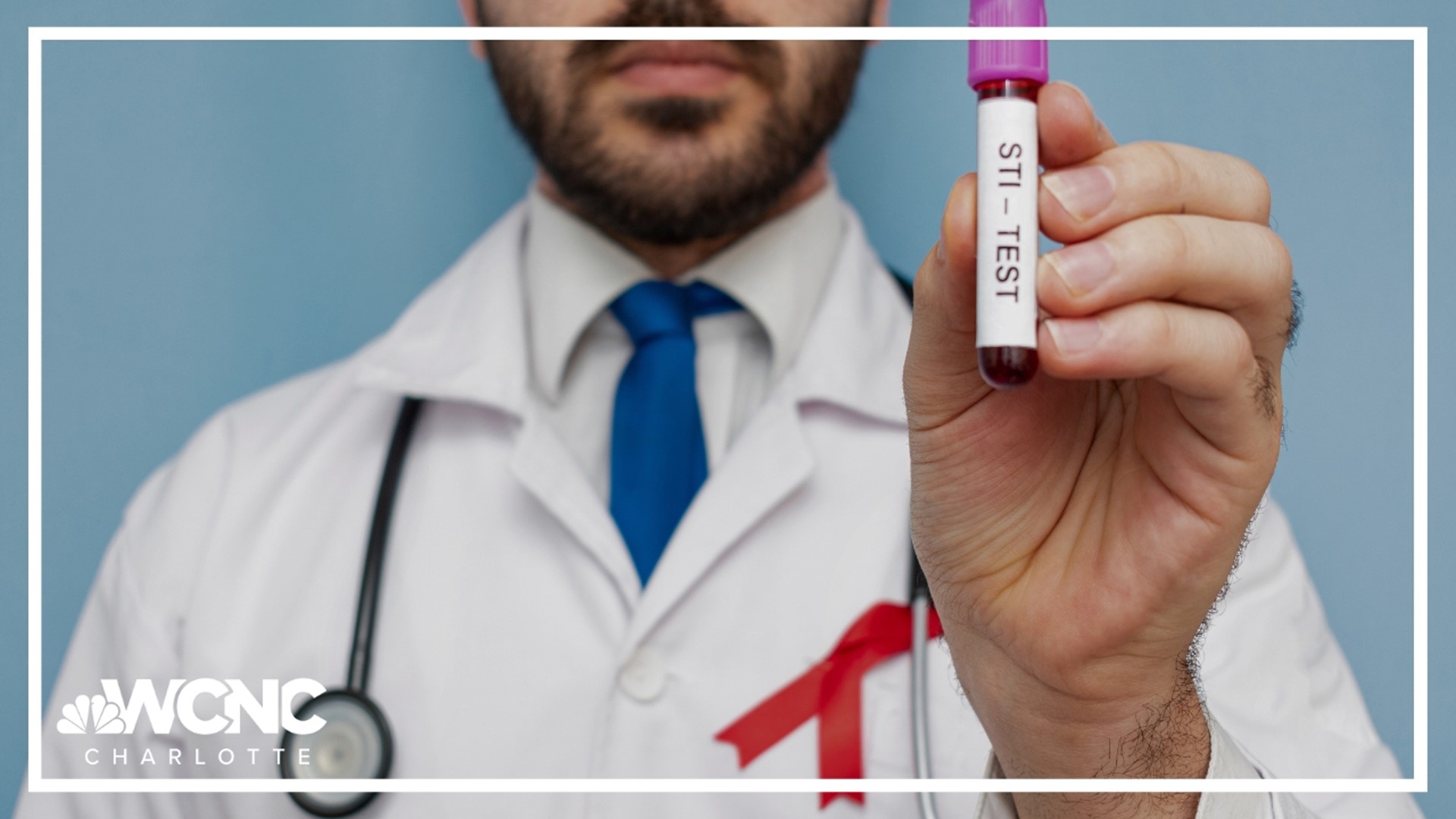CHARLOTTE, N.C. — Mecklenburg County Public Health says the growing number of sexually transmitted infections is concerning.
"We continue to be challenged with an increasing rate of syphilis," said Dr. Raynard Washington, the director of the agency.
Data from the health department shows the number of syphilis case rates dating back to 2018. Each year the cases continue to grow, jumping about 17% to more than 65% by 2022.
"It's really important that we continue to identify new cases and then do the follow-up with those individuals," said Dr. Washington.
He says following up with patients has been a big challenge, but they are key to identifying the source and disrupting future transmission of the disease.
"We are struggling to do follow-ups and about 16% of our syphilis cases have not been able to be located because either the phone number or address is not good," he said. "Our team is out every day trying to find these individuals and make sure they're aware of their status so we can bring them into care and figure out who they may have exposed."
Dr. Washington says the health department is also working to increase testing measures and has already mailed out 100 of their new at-home kits. He says the kits give people the option to test themselves instead of coming into the center.
"It does take away the anxiety and stigma with the testing process and it's completely done for free at no cost to the resident," he said.
Meanwhile, South Carolina health departments are also seeing an uptick in STIs.
"There's a lot of syphilis," said Bernard Gilliard, the state program manager for Partner Services and Disease Intervention with the South Carolina Department of Health and Environmental Control.
"We are seeing increases in more seasoned individuals," he said, noting people of all ages are becoming new cases.
Gilliard says they're focusing on education, awareness, and routine screening to combat the spread. He says riskier activities by people in general have all contributed to this perfect storm.
"We're getting the healthcare community involved, to have them all know that STIs are a problem," said Gilliard.
Health officials on both sides of the Carolinas are hoping their efforts will help put an end to the spread.
Contact Tradesha Woodard at twoodard1@wcnc.com and follow her on Facebook, X and Instagram.

